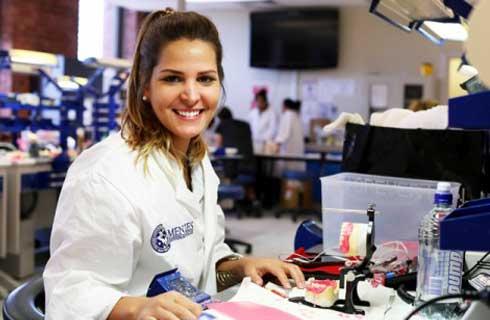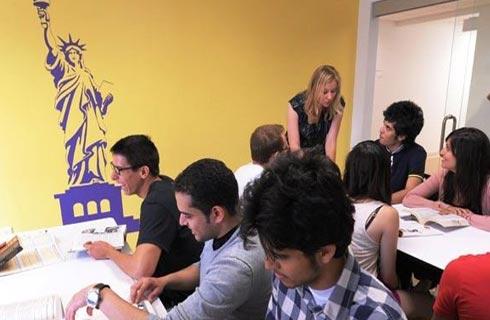国际学生入学条件
Official Transcripts required.
Cumulative Grade Point Average from most recently conferred undergraduate, graduate, or professional degree: 3.25 or equivalent (A=4.0)
TOEFL iBT - 80 (Minimum Scores: Writing 18, Speaking 18, Listening 14 and Reading 19)
TOEFL PBT - Reading 19, Listening 14 and Writing 18
IELTS - An overall band score of 6.5 is required for admission with the following minimum section requirements:
Reading 6.5, Listening 6.0, Speaking 6.0 and Writing 5.5
展开
IDP—雅思考试联合主办方

雅思考试总分
6.5
- 雅思总分:6.5
- 托福网考总分:80
- 托福笔试总分:160
- 其他语言考试:NA
CRICOS代码:
申请截止日期: 请与IDP联系 以获取详细信息。
课程简介
Instrumentation is pervasive in biomedical applications. Sensors are used to understand physiological functions in healthy and diseased states, develop novel diagnostics, detect pathogens, monitor patient health, and evaluate treatment outcomes. Stimulation is applied to control disease or to restore function. World-class research in the Purdue Instrumentation group within the Weldon School of Biomedical Engineering is addressing all aspects of instrumentation design and application, from the engineering underlying device development and optimization, to the basic science required to develop novel experimental approaches for testing instrumentation and evaluating (patho)physiology, to the signal processing and biostatistics required to analyze data efficiently for clinical application.<br><br>Technology for measurement and stimulation of many varied biological systems is being developed, tested, and applied at Purdue in a wide range of biomedical applications. Cutting-edge technology development is ongoing in the design and fabrication of implantable analog integrated circuits, wireless data and power coupling, digital signal processing for online and offline data analysis, rapid prototyping of microfluidic biosensors, chromatographic purification techniques, wearable health technology, flexible/stretchable electronics, minimally invasive neuro-stimulation devices, rapid prototyping of low-cost health technologies, pathogen detection and evaluation of therapeutic efficacy, and acoustic biosensors. Specific applications being pursued within the group include epilepsy, glaucoma, cardiology, point of care diagnostics, neural interfaces, cellular analysis, mass spectrometry, assistive and rehabilitative medicine, auditory neuroscience, and device/tissue interactions. The multidisciplinary research team at the Weldon School of Biomedical Engineering is not only developing and applying the next generation of instrumentation technology for improved global health, but is just as importantly training the next generation of biomedical engineers in this exciting area of translational research.
展开







 预科
预科 奖学金
奖学金 实习机会
实习机会 在校学习
在校学习 跨境学习
跨境学习 校园授课-线上开始
校园授课-线上开始 在线/远程学习
在线/远程学习













 北阿尔伯塔理工学院
北阿尔伯塔理工学院

 弗莱明学院
弗莱明学院

 不列颠哥伦比亚理工学院
不列颠哥伦比亚理工学院

 萨省理工学院
萨省理工学院

 圣劳伦斯学院
圣劳伦斯学院

 圣劳伦斯学院
圣劳伦斯学院









 美国
美国
